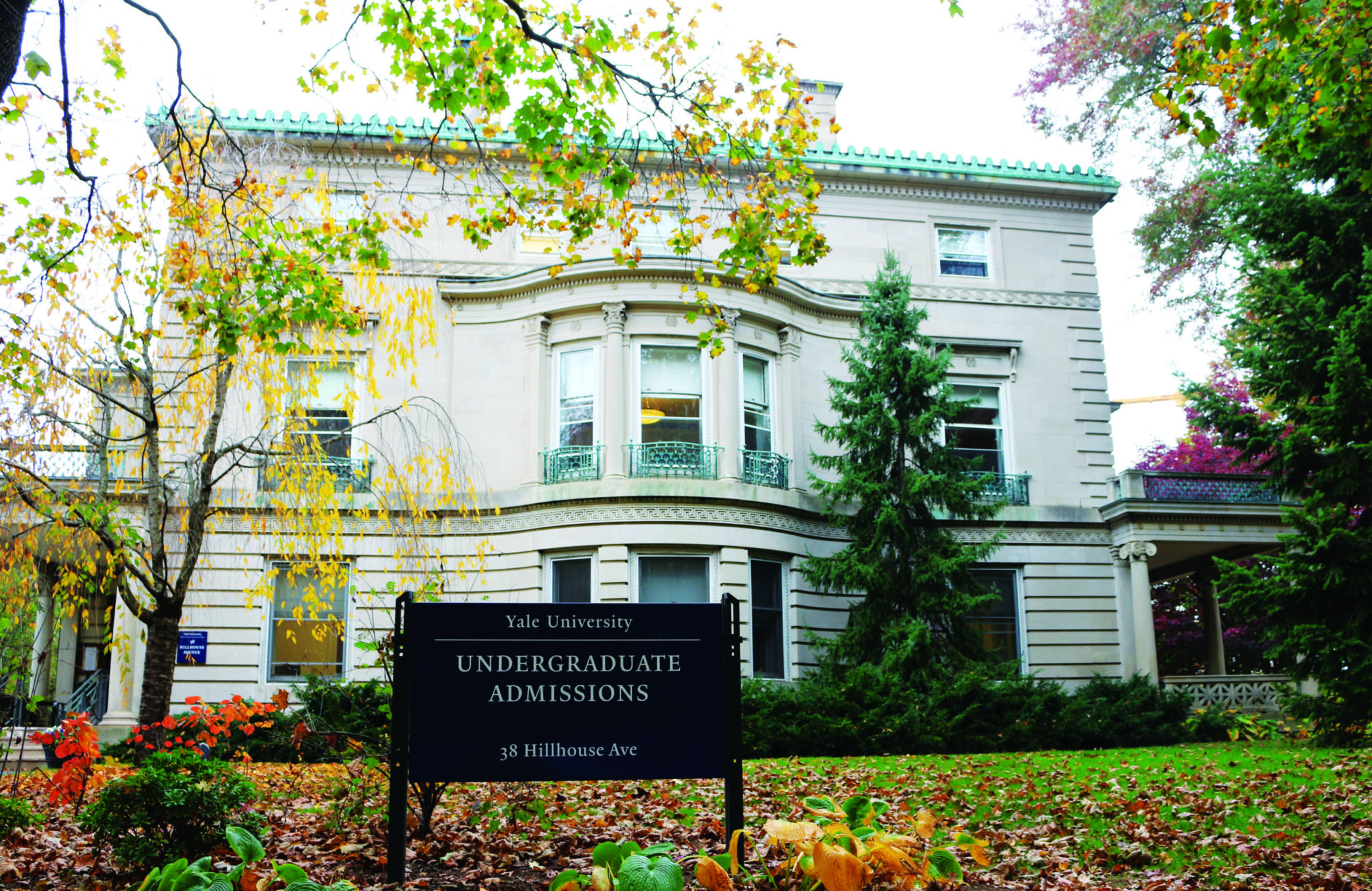Quinlan testifies in support of legacy admissions
On Thursday, Dean of Undergraduate Admissions Jeremiah Quinlan and YFAM President Logan Roberts offered opposing arguments regarding a state bill seeking to bar legacy preference.

Yale Daily News
As Connecticut lawmakers discuss legislation that would end legacy admissions in schools across the state, Yale has dug in its heels.
Dean of Undergraduate Admissions and Financial Aid Jeremiah Quinlan submitted a written testimony opposing the bill. Meanwhile, Logan Roberts ’23, president of the Yale First-Generation, Low-Income Advocacy Movement, joined Thursday’s virtual hearing to argue in the bill’s favor.
“Students who already have a leg up in the admissions process don’t need an extra leg up,” Roberts told the News. “Legacies are already whiter, wealthier and more advantaged, and giving them an extra boost does nothing.”
H.B. 5034 was submitted to the Connecticut General Assembly’s joint committee on Higher Education and Employment Advancement on Feb. 9. Sen. Derek Slap (D-Conn.), of West Hartford, attributed the bill to fellow legislators and an education reform group, though he did not offer names.
Slap said the bill is still novel and that he is in a “fact-finding place,” and that he is not yet sure how many of his colleagues agree or disagree with its premise.
“I anticipate some lawmakers will balk at interfering with admission practices at private colleges and universities, and I get that,” Slap wrote in an email to the News. “We will have to see what committee members think and how best to proceed.”
Slap added that the issue of legacy preference is especially worth examining in the context of the Supreme Court’s January decision to reconsider race-based affirmative action.
Roberts, who penned an October Yale College Council resolution calling for the end of legacy preference, learned of the bill when he received an email this week from the Connecticut branch of Education Reform Now, a national organization advocating for policies that support low-income students and students of color.
Amy Dowell, the Connecticut state director at Education Reform Now, submitted both written and oral testimony for Thursday’s hearing.
“Using legacy preference in college admissions is unfair, discriminatory, and a relic of the past,” Dowell wrote in an email to the News. “Connecticut has the opportunity to be the first state in the nation to end this practice at all public and private colleges.”
Quinlan wrote in his testimony that both Yale and the bill’s proponents want to make education more accessible to first-generation, low-income students. He explained that Yale grants the most generous financial aid packages in the state, offers additional academic support for first-generation, low-income students and does not consider an applicant’s wealth when assessing their acceptance — though this claim is currently being contested in court.
In his testimony, Quinlan recommended that the state turn its attention from ending legacy advantage to recruiting students from underrepresented backgrounds. Quinlan’s suggestions include targeted outreach, enrichment programs in low-income schools and fully funding the Roberta Willis Scholarship Program.
“Even without [legacy] preference, students with more resources will still have an advantage in college admissions, just as they have an advantage in securing a good job and in many other aspects of daily life,” Quinlan wrote. “Instead, the state should support schools in their efforts to identify, recruit, and graduate low-income and first-generation students.”
Roberts and Viet Andy Nguyen, an education equity activist Founder of EdMobilizer, both told the News that they refuse to accept that the University cannot support first-generation, low-income students and end legacy preference at the same time.
Quinlan told the News that the intent of the bill is to promote equity and access at Connecticut universities, and Yale is an institution that can diversify — and has diversified — without the government interfering in the admissions process. Quinlan added that only 12 percent of the first-year class holds legacy status, and that legacy preference applies to all children of Yale alumni regardless of their financial background.
Representatives from Connecticut College, Fairfield College and Sacred Heart University all submitted testimonies opposing the bill as well. The schools — including Yale — each claimed that the government should not be allowed to interfere with University admissions.
Yale did not employ legacy preference for 224 of its 321-year existence.







